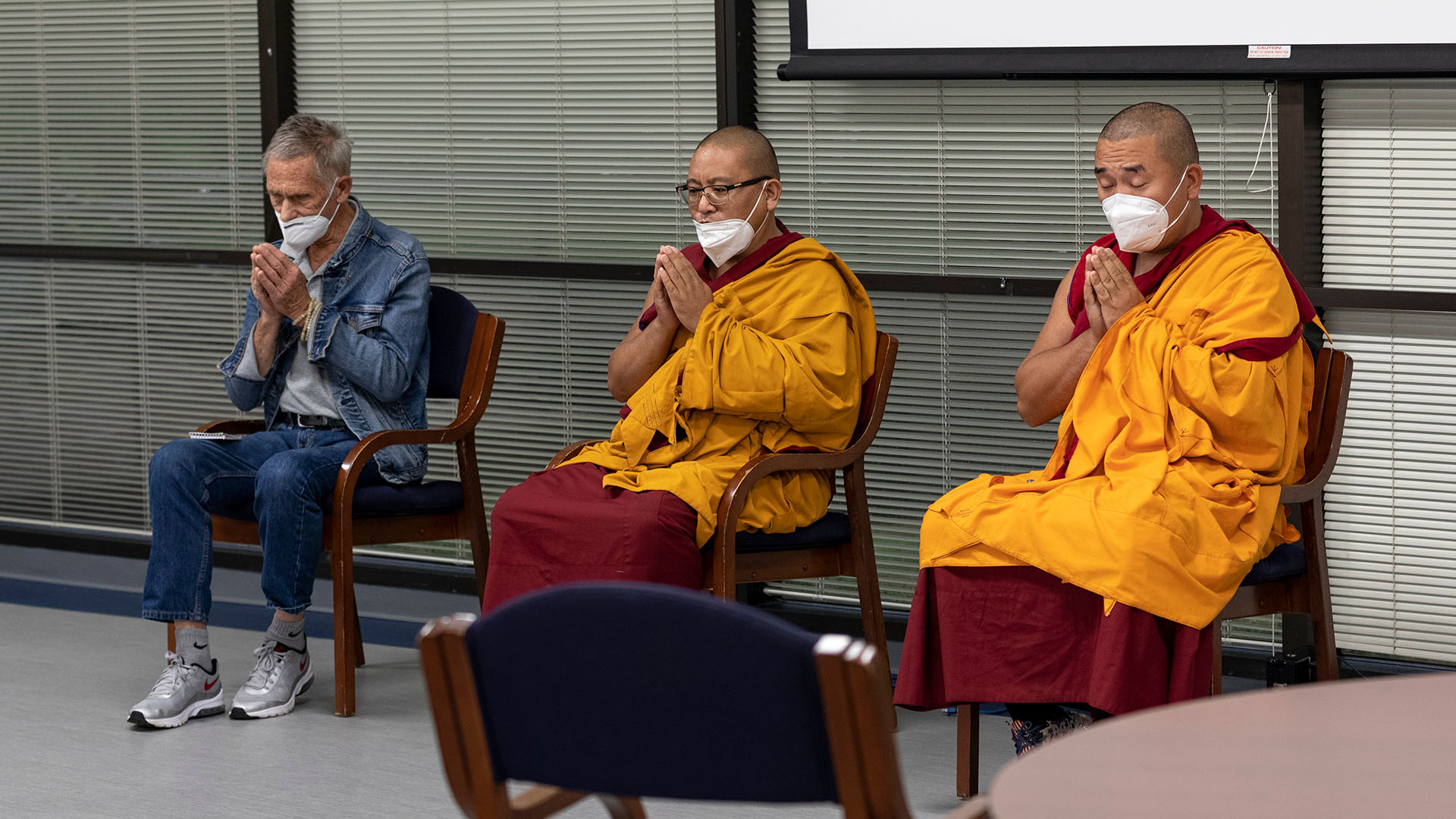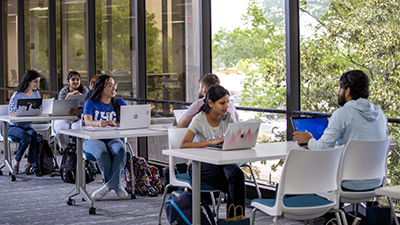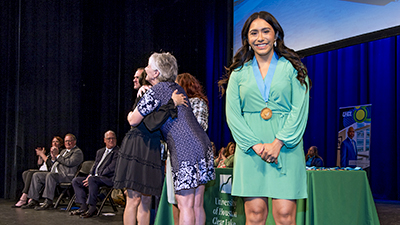Buddhist perspective: climate change is about personal ethics, activism

As the ravages of climate change continue to batter the planet, scientists and experts keep offering their advice on how to keep our planet from warming. Geshe Jampa Wangchuk—Geshe meaning something equivalent to "spiritual father" in the Buddhist faith and similar to a doctorate in academic terms—spoke through an interpreter about the Buddhist perspective on climate change during a visit to University of Houston-Clear Lake last month.
Geshe Wangchuk and five other monks worked several hours a day throughout their weeklong visit to UH-Clear Lake on a sacred mandala, a spiritual, ritually constructed symbol made of sand that represents a form of sacred architecture. They also presented two lectures to the community, including one on climate change.
Buddhists believe that spiritual practices should be employed along with education and activism, and spiritual resources can help move people forward.
"From a Buddhist perspective, when we ask how we can overcome climate change, one of the answers is that people do not feel the problem is actually related directly to them," Geshe Wangchuk said. "We would say that wisdom comes from interdependent originations. This means, we are all interconnected. This is reality. So, if we believe we are all interconnected and dependent on each other, those natural resources that we have in the world like water, trees, mountains and air, are how we stay interconnected.
"Therefore, if you understand this, destroying those resources causes direct harm to us, and also indirect harm to many, many things. So, this is not only a worldly purpose, but a beyond-worldly, or spiritual purpose. Once you harm something we all depend on, you also harm yourself," he said. Making ourselves more altruistic, Geshe Wangchuk said, will influence the protection of all those resources to which we are all connected.
There are those who see climate change as an ecological or environmental issue, or perhaps a social or economic issue. But ultimately, he said Buddhists believe human actions are the source of the problem.
Geshe Wangchuk said that climate change is about our personal ethics. He said he believed climate change is happening because of our imbalanced sense of personal values and what we believe is important to us as human beings on this planet.
"First you have to transform yourself from contaminated things like greed, craving, grasping, unnecessary needs and wants," he said. "There is nothing wrong with having more, but while you're in that process, you ruin the resources for everyone, because it's the demand for those ‘things' that comes from self-cherishing. We no longer concern ourselves about others."
If people focused on cherishing others instead of wanting more things, he said, altruistic motivations will be uppermost in their mind. He added that our values are too connected to having possessions, and that the central problem was our personal ethics—what we believe we can do, versus what we should do.
"If people practice selflessness, become more content with what they have and are less attached to things, they will automatically become more aware that a person is just one but humanity is infinite," he said. "If you can create this in your mind, there will not be any more issues at all with this."
Geshe Wangchuk said that as they have toured the United States and spoken about their perspective on climate change, they have encountered differing reactions from their audiences.
"There are those who say this problem is not related to them because it has to do with rich people who are expanding their businesses and using up the natural resources, and they can't do anything about it," he said. "Our human nature is, if we don't experience something personally, we don't take it seriously. It doesn't matter if you're wealthy and you have a lot of property if you don't have air."
A core Buddhist belief, Geshe Wangchuk explained, is in the principle of cause and effect. "We believe in questioning and in debating in our monastery," he said. "This is our method. One mind is only one perspective. To be a geshe, you have to work through personal logic and debates with 10,000 monks. That is how you become sharp. We have to study Socratic debate 23 years, six hours a day."
Ultimately, he said, it is not about arguing or conflict. "We debate, but it is to have more knowledge and more wisdom. Debating about global warming is worldly, but we are Buddhists, so we know there are spiritual ideas beyond worldly things. We first need to be trained in worldly problems so we can work to get beyond them," he said.
The monks are on a two-year "Sacred Arts of Tibet" tour of the United States, with their visit to UHCL arranged by Associate Professor of Sociology Stephen Cherry, a practicing Buddhist, and sponsored by the College of Human Sciences and Humanities.
For more information about the Sacred Arts of Tibet tour, go online.







